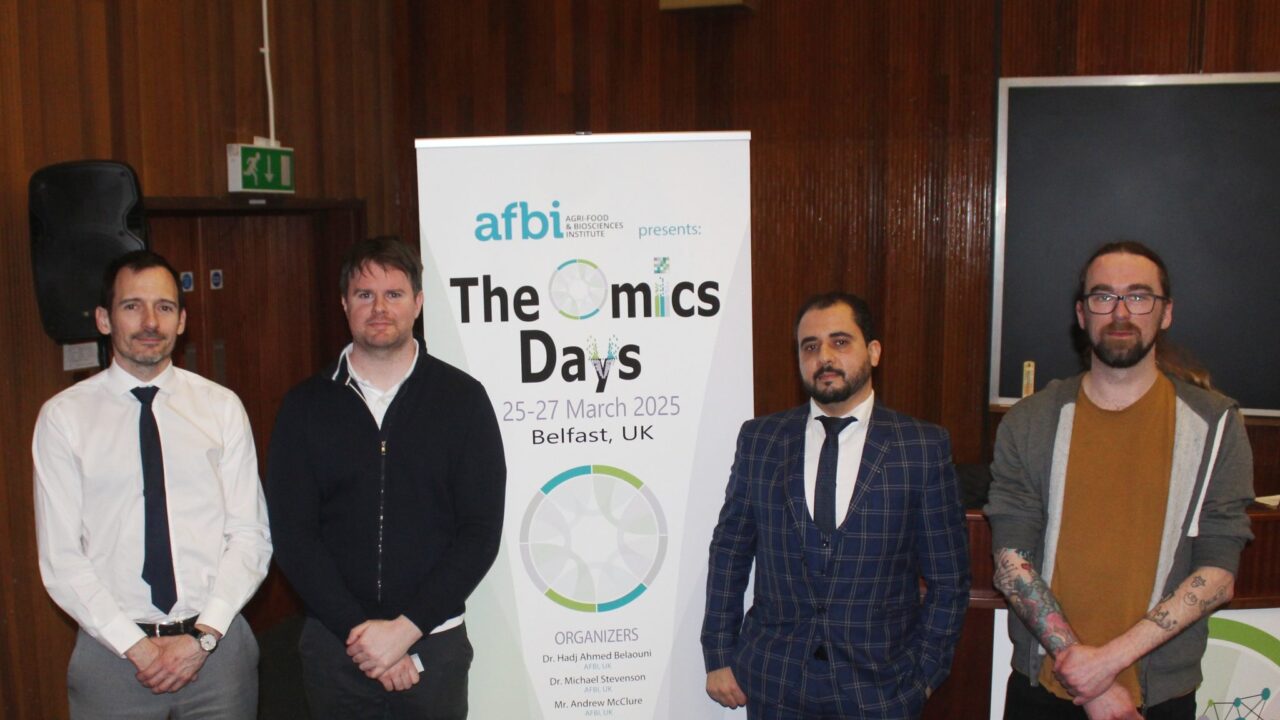Scientists at the Agri-Food and Biosciences’ Institute (AFBI) have said the organisation needs to prioritise developing a strong competency in ‘big data analytics’ .
This issue was discussed in detail at an Omics’ conference hosted by the research body in Belfast this week.
Veterinary bacteriologist, Dr. Adrian Allen, specifically referred to the need for AFBI to have teams of people with specialist capabilities in big data analytics and interpretation.
The event was marked by a number of presentations on the impact that new analytical techniques are having on the science associated with animal and plant diseases. The role of genomics was specifically profiled in this context.
But cutting edge analytics, while delivering new information, also have their downsides.
Having enough physical IT capacity is one issue. But of equal importance is the need to develop the means by which this information can be accurately interpreted.
Big data analytics
A case in point is the role of genomics in helping to identify genes that have developed antimicrobial resistance (AMR) capabilities.
However, working out and predicting environmental and other factors that actually cause the identified genes to develop AMR is another challenge altogether.
Plant health diagnostics is another area where technologies – such as high throughput sequencing (HTS) – will have a key role to play.
It is envisaged that such an approach will ensure the much earlier identification of plant pathogens. In turn, this should lead to more effective use of integrated pest management (IPM) to deal with disease threats impacting the tillage and horticultural sectors.
But again, the issue of most import for plant pathologists in not that of identifying the presence of specific pathogen DNA but rather interpreting the results that are produced courtesy of the analytical technology now available to them.
Metabarcoding was highlighted as a specific HTS system with significant potential. This is a molecular technique that uses DNA sequencing to identify multiple pest species within a tissue sample.
It is already recognised as a means of short circuiting the myriad analytical techniques and processes that are implemented in statutory plant health laboratories around the world.
Standardising data
However, much more work will be required to standardise the information the technology produces and the interpretation of the results thereof.
This is why metabarcoding could yet be some years off as a standard diagnostic tool for government and other accredited laboratories, where replicable results are a core requirement.
Meanwhile, big data analysis will be of of specific significance in Northern Ireland, where the genomic sequencing of all breeding bovine animals will be undertaken over the next two to three years.

